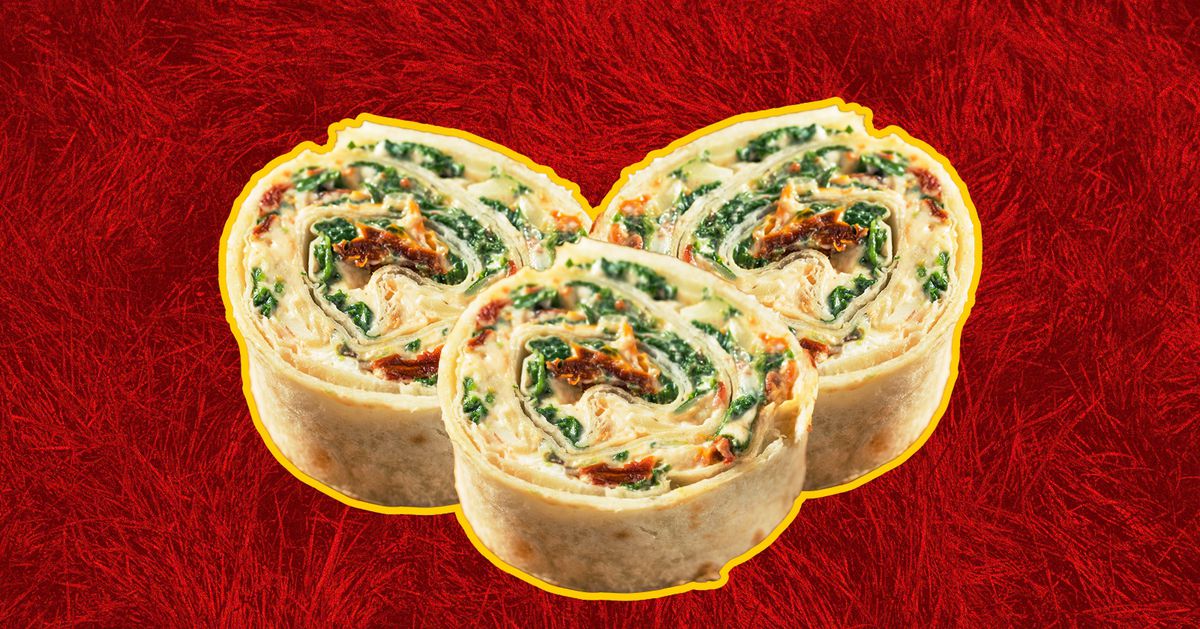
When I was a kid, my family had a membership at what could be described in only the most generous sense as a “country club.” There were no golf courses or fancy cafes for lunch — just a swimming pool with a questionably constructed water slide, a couple of cracked tennis courts, and some vending machines. But my brother and I were never allowed to eat from those vending machines because my mom always packed us a cooler full of stupid, soggy sandwiches.
It was this experience that largely shaped my no-sandwich approach to leisurely outdoor activities later in life. I do not want to eat a cold, mushy sandwich, especially now that I am an adult with the ability to make my own choices. But when I’m headed to a picnic or on a vacation to one of our country’s great national parks, I understand their utility. Sandwiches are portable, inexpensive, and easy to prepare. (And, when properly constructed, are quite sturdy.) But so are pinwheels, and that’s what you should be making instead.
For the uninitiated, a pinwheel is pretty simple: It’s basically a sandwich constructed on a tortilla instead of bread, which is then rolled up and sliced into aesthetically pleasing little rounds. A classic pinwheel, and the one I grew up with, involves spreading a tortilla with ranch-flavored cream cheese, then layering on slices of turkey deli meat. But you can do so much more with the pinwheel! This is, truly, a roll-up that knows no bounds.
The one component I would stress as essential, however, is liberally applied cream cheese. You can certainly use a vegan substitute, but the base layer here should be thick and fatty enough to protect the tortilla from the moisture in your fillings. Remember: The goal is to avoid sogginess at all costs. You can always spice up the cream cheese — za’atar, scallions, or a dash or two of hot sauce are great additions — or go with another thick spread, like hummus or even peanut butter if you insist on having a PB&J.
The fillings are equally important. They’ve got to be thin enough to roll neatly into a pinwheel shape, so most deli meats fit the bill. Thinly sliced cheese also works well. Toppings without much bulk, such as arugula or thinly sliced pickles, may also make an appearance. But feel free to get creative! My very favorite iteration of the pinwheel is bagel inspired: a spinach tortilla spread thick with dill cream cheese and layered with lox and everything bagel seasoning.
It may take you a few tries to cut the rolls evenly and neatly, and not all of your first pinwheels will be especially beautiful. Use a sharp knife, and wipe any cream cheese remnants from the blade between slices to help keep them neat. Even if they look a little ragged, your pinwheels will still be delicious, which means that you can just eat the evidence before anyone sees your sloppy knife work.
And while it may take a little bit longer (by about two minutes) than slapping together some peanut butter and jelly on bread, the payoff in flavor — and the distinct lack of sogginess — is more than worth the effort.
